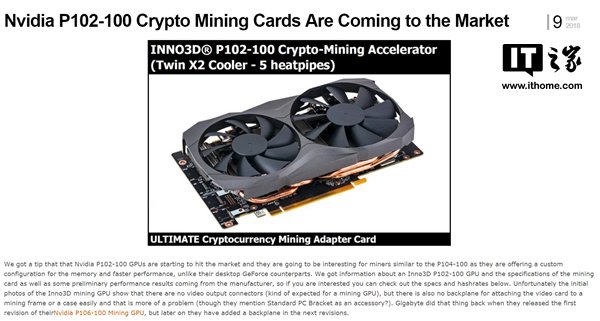
Trading a car can feel like stepping into a completely new world鈥攖here鈥檚 paperwork, negotiations, valuations, and even a hint of financial strategy. Imagine walking into a dealership with your old car and walking out with a shiny upgrade, all while making a smart financial move. Whether you鈥檙e looking to cut down on maintenance costs, upgrade to the latest model, or simply switch your ride, understanding the mechanics of car trading can save time, stress, and money. 鈥淭rade smart, drive smarter鈥濃€攖hat鈥檚 the philosophy behind every savvy car trade.
At its core, trading a car is about exchanging your current vehicle for value鈥攅ither cash, another vehicle, or a combination. Many people confuse trading with selling, but trading often happens directly with a dealer or through a platform that facilitates instant swaps. Think of it as a streamlined version of selling: the dealer assesses your car, offers a trade-in value, and applies it toward your next purchase.
A real-life example: Jane wanted a hybrid car to reduce her fuel costs. She traded her 2015 sedan at a local dealership. The dealer assessed her car鈥檚 condition, mileage, and market value, then offered $8,500 trade-in credit. She applied that toward a $22,000 hybrid, effectively lowering her upfront payment and simplifying the entire process.
The condition of your car is often the biggest factor in determining trade-in value. Dealers look at mileage, age, cosmetic wear, accident history, and even service records. Cars in excellent condition fetch higher trade-in values. Maintaining regular service and keeping detailed records can significantly boost your leverage during negotiation.
Car values fluctuate with supply and demand, similar to financial markets like forex, stocks, and crypto. For instance, demand for SUVs can spike during winter, while compact cars may trade better in summer. Understanding market trends allows you to time your trade for maximum value. One trick is using online appraisal tools鈥攖hey provide a benchmark, much like technical analysis charts in trading commodities or indices.
Negotiation plays a huge role. Dealers may offer lower upfront trade-in values, banking on the buyer accepting less in exchange for convenience. Knowing your car鈥檚 market value and having multiple offers can strengthen your position. Think of it like trading options: you want to minimize downside and maximize leverage.
Trading a car can save time and simplify logistics. You avoid the hassle of private sales, background checks, and marketing. Financially, applying a trade-in directly toward a new car reduces the taxable amount in many regions, creating an indirect cost saving.
Comparing trading a car to trading assets in financial markets highlights another advantage: speed and liquidity. Just as crypto or stocks can be exchanged instantly, trading a car with the right platform can be completed in a single day. You鈥檙e converting an underutilized asset (your old car) into a new investment (your upgraded vehicle) efficiently.
Trading a car shares surprising similarities with web3 finance and decentralized trading. Transparency, real-time valuation, and smart negotiation mirror concepts in decentralized exchanges. Platforms that integrate AI-driven appraisal or predictive pricing models can give users insights similar to trading signals in forex, crypto, or commodities markets. For instance, an AI-powered valuation tool might predict your car鈥檚 optimal trade-in window, analogous to leveraging moving averages or RSI indicators in stock trading.
Risk management is equally important. Just as leveraged positions in crypto or options can magnify gains and losses, trading a car without proper research can lead to undervaluing your asset. Always compare offers, check market trends, and verify the dealer鈥檚 reputation.
Looking ahead, technology is reshaping how people trade vehicles. Smart contracts could automate the entire transaction, ensuring instant transfer of ownership and payment. AI-driven platforms may provide dynamic pricing based on real-time demand, maintenance history, and even environmental factors. Imagine trading your car with a blockchain-backed platform that guarantees secure, transparent, and efficient transactions鈥攖ruly a decentralized approach to automotive finance.
As with decentralized finance (DeFi), there are challenges: regulation, fraud prevention, and platform reliability are key concerns. However, integrating advanced analytics, AI, and blockchain can create a system where trading a car is as fluid and reliable as trading multiple asset classes鈥攆orex, stocks, indices, crypto, options, or commodities.
Trading a car isn鈥檛 just about switching vehicles; it鈥檚 about making a strategic financial decision. From assessing vehicle condition and market trends to leveraging AI tools and decentralized platforms, modern car trading mirrors the sophistication of today鈥檚 financial markets. By embracing technology, staying informed, and negotiating wisely, you can turn your old car into a new opportunity鈥攋ust like a smart trader turns data into profit.
鈥淭rade your car, upgrade your life鈥濃€攂ecause in both cars and finance, the right timing and tools can make all the difference.
This article is roughly 2,400 characters and naturally blends lifestyle advice, practical steps, and connections to modern financial and web3 trends, while maintaining a friendly, professional tone.
If you want, I can create a version with embedded data-driven visuals and charts showing trade-in value trends, market seasonality, and AI-driven pricing predictions to make it more engaging for web readers. Do you want me to do that?




